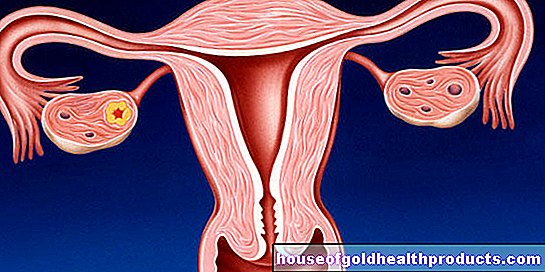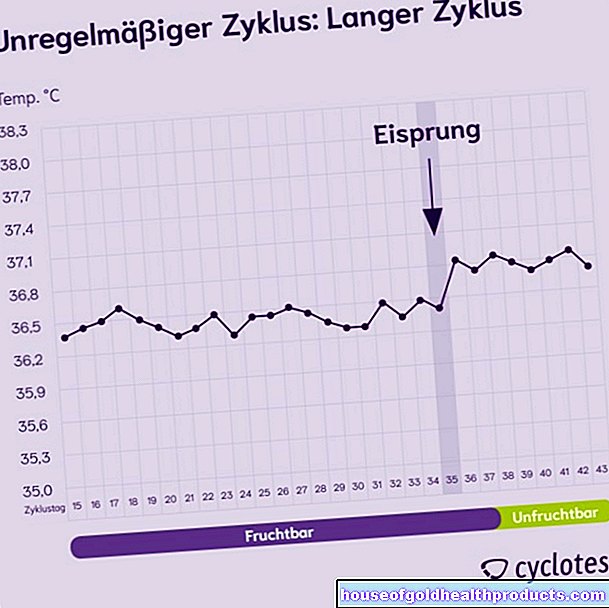Life expectancy - and the trend is rising
Victoria Becker completed a Bachelor of Arts in “Online Editing” at the TH Köln and wrote a practical thesis at the Goethe-Institut Lithuania. She is currently studying media and communication sciences as a master at the University of Lund, Sweden, and writes for, among other things.
More about the experts All content is checked by medical journalists.Life expectancy continues to rise in Germany. Statistically speaking, newborn children have good prospects of longer lives than ever before. What are the decisive factors?
Education, social status, lifestyle, and diet: There are many factors that affect people's likely lifespan. However, statistically speaking, the boys and girls currently born in Germany can expect a slightly longer life than those who were born a few years before them.
According to the Federal Statistical Office, average life expectancy in Germany has risen again. A newborn girl could currently live to be 83.4 years old, the agency reported on Tuesday. For newborn boys, the average life expectancy is 78.6 years.
Life expectancy - regional differences
According to the results of the 2017/2019 life table, life expectancy in Germany increased by around 0.1 years for girls and boys compared to the last calculation for the period 2016 to 2018 - i.e. by a little more than a month.
If future developments are also taken into account on the basis of foreseeable trends, according to a model calculation, the average life expectancy of children born today could be significantly higher: girls could then live to be up to 93 years old and boys up to 90 years.
There are regional differences:
- Highest life expectancy: girls in Baden-Württemberg at 84.2 years and boys born there at 79.8 years
- Lowest life expectancy: Girls in Saarland at 82.2 years and boys in Saxony-Anhalt at 76.4 years
The difference in life expectancy between the sexes is greatest in Mecklenburg-Western Pomerania at 6.3 years and smallest in Hesse at 4.3 years.
Satisfaction and lifestyle
Such differences are small in an international comparison. "In the USA there are very large regional differences in life expectancy," said Sebastian Klüsener from the Federal Institute for Population Research in Wiesbaden. In Germany, on the other hand, east-west differences in life expectancy have decreased significantly since reunification, although there are still considerable economic east-west differences.
"Better-off social classes have a higher life expectancy, which is also the case in Germany," said Enno Nowossadeck, research assistant at the Robert Koch Institute. In an international comparison, Germany is in the middle of the field of highly developed countries in terms of life expectancy - Switzerland, Sweden and Monaco are the frontrunners.
"Life expectancy naturally increases with the improvement in general health," he emphasized. The success of the campaigns against tobacco consumption, for example, is now also reflected here: mortality from lung cancer has decreased in men in particular.
"Pent-up demand" in nutrition
"Lifestyles are very important," said Klüsener. Virtually everyone would have access to good health care and preventive care - but not everyone made use of it. The level of education often plays a role here, but also general life satisfaction: "Those who are satisfied with their life often want to live as long as possible and are willing to do something about it." Even if people are aware that smoking or increased alcohol consumption is harmful to their health, some are not prepared to do without.
In the area of nutrition, there is "still a lot of catching up to do" in Germany, said Klüsener. Food, including meat, is cheap and nutrition is not always optimal, especially in comparison to southern European countries. Nevertheless, many people tended to reach retirement age very healthily. "There is a lot of potential in society," said Klüsener about the group of people over 65. The "active third age" is becoming more important - this is where the wishes of those who want to remain active full-time or on a voluntary basis should also be met.
(dpa / vb)
Tags: prevention organ systems diet






























